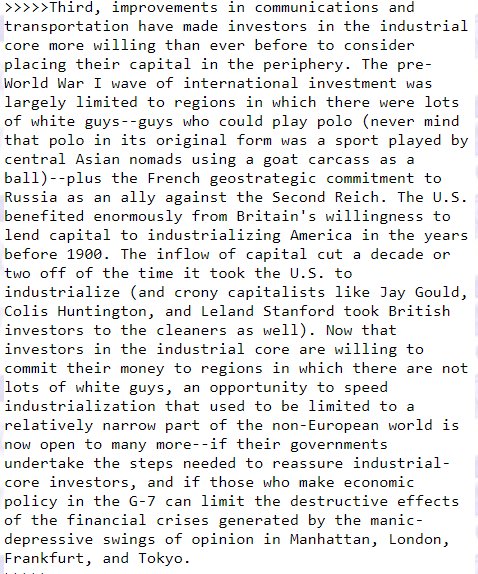Lean & mean private company. Then Microsoft acquired us.
Presumably we will either go public or be acquired, and my options will pay off.
The reason I say big SV VCs are charlatans is they profit by inflating the values of risky stuff.
I think his pitch that it's a conceptual tool for analysis, potentially as powerful as the relational database, is a good pitch.
It just seems like famous startups are really overvalued. Uber, too.
Instacart figures prominently in the Tad Friend New Yorker article on Andreessen that I linked earlier. The level of hubris & contempt for the Instacart doubters is amazing.
Afterward, Andreessen told his colleagues, “She didn’t really answer Chris’s question. If it’s marketplace, it’s defensible; if it’s enterprise, she can be undercut.” If Ringwald’s customers were the workers,
End quote. So that's how elite VC firms discount B2B companies.
The idea came from "her work interviewing people on the unemployment line, and how she’d eventually realized that…
🎶 Everybody wants to rule the world. 🎶
End quote. People sometimes ask me why I've never watched Silicon Valley. Too traumatic. Too true to life to be funny. Much too dark.
Investment is largely controlled by bankers who think like venture capitalists. Society is an externality.
Imagine no libraries, no roads, no public parks, nothing that isn't privatized and requires you to install an app to use.
The tariffs may lead to new factories.
But with GOP dominating all three branches of federal government, we give out a tax cut for companies to buy back their shares.












